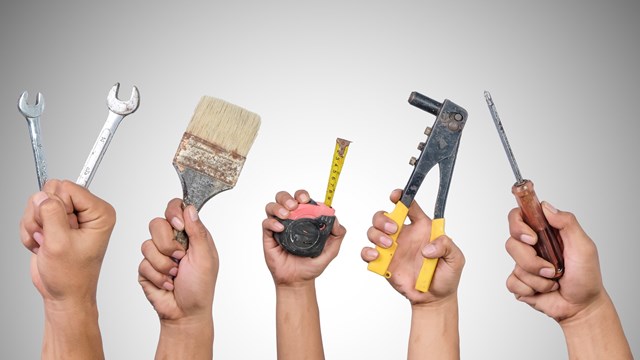
Building a successful enterprise from the ground up requires dedication and commitment from dozens, if not hundreds, of people. That’s certainly the case with the creation of a new co-op or condo community, entities that are just as much about home as they are about business. The first few months or years of a condo’s existence can be especially turbulent as it involves the establishment of a board and the transition from being owner/resident-controlled. Sometimes that transitional road can be bumpy—especially if those two parties fail to see eye to eye. With the right combination of planning, communication and trust, however, the birth of a board can be a lot less painful than expected, something sure to be a relief to anyone and everyone involved.
How a Board Begins
Just the way a constitution sets the stage for how a country will be run, a condo’s bylaws determine how it will function. In addition, bylaws dictate how, in the very beginning, the condo will change hands from the sponsor who created it to the residential board members who will guide it in the future.
When a condo is created, New Jersey law dictates that an entity must exist for management of the common elements, and that governing body is the association, which is governed by the board. “The board exists from the day the first unit is sold,” says attorney J. David Ramsey, an attorney with the Iselin-based law firm, Greenbaum Rowe Smith & Davis LLP.
In its earliest incarnations, the board usually consists of three members, all of whom are appointed by the developer. “The board doesn’t really function at that point as a board,” Ramsey says. “Ninety-nine percent of the time, the developer will just say this is what we’re going to do and that’s what they do.”
Once 25 percent of the units are sold, at least 20 percent of the board must be elected by unit owners other than the developer, Ramsey says. At that point, the board expands to five people and one member is now a unit owner, comprising the required 20 percent. When 50 percent of the units are sold, then the unit owners get a second seat. At 75 percent, the unit owners take control and have the right to elect the entire board. If, however, the developer still owns at least one unit in the building, that firm will retain a seat.
According to the New Jersey Condominium Act, once the unit owners take control of the board, the developer must turn over everything—including the master deed, articles of incorporation, warranties, and signed affidavits ensuring that everything promised in the building plan was actually built—explains Wyckoff-based attorney Scott Piekarsky of Piekarsky & Associates. “This needs to happen not more than 60 days after unit owners elect the majority of the board,” he says.
Where the Problems Begin
It’s that transitional period that holds the most potential for conflict and disarray between the developer and the unit owners. Problems can arise due to the length of time it takes for the transition from developer-control to resident-control.
“It’s been somewhat of a controversial topic because it can take years to reach that 75 percent number [when the residents can take control],” Ramsey says. Although the law does permit a developer to turn control over earlier if the board agrees to accept that control, those instances are rare. The reason? “When they’re in the early stages of development, the developer wants to make sure that there’s nothing being done to impede sales of units,” according to Ramsey.
For example, if a resident suddenly decides they want to paint their individual townhouse pink, that’s something the developer might wish to stop as it might ruin the aesthetic of the community and thus, make it less desirable as a place to live.
The same holds true on money issues. A developer is going to be reluctant to raise maintenance fees, since low monthly costs can be a huge selling point for a unit. So if a board tries to double maintenance fees, the developer may veto that action. Conflict can ensue if neither side is willing to negotiate and work together to solve the issues, taking into consideration both sides of the problem.
If talks can’t solve the problem, there’s not a lot that can be done as no law exists in New Jersey that puts a finite timeline on how long the developer can retain control of a board. On occasion, the New Jersey Department of Community Affairs (DCA) may require developers to put a clause in the governing document stating that they will turn control over within a certain number of years—usually a few years for a small project and 10 years for larger construction ventures. By far, though, the pros say that most co-op and condo associations do not have that sort of provision available to them.
Avoiding the Fray
The best way for boards and developers to avoid disagreements in these early days is to know what problems can cause them and studiously avoid getting involved in potential issues in the first place. For developers, that means “understanding that you’re dealing with people,” Ramsey says. “No matter how good a job they have done, there’s going to be suspicion and criticism, and they can’t overreact. Some builders will withdraw into their shells and say, ‘the heck with you.’ That just makes the other side more suspicious and it just makes things worse.”
Construction issues are often the biggest problems facing new boards, says attorney David Byrne of Stark & Stark in Lawrenceville. Most new construction will have at least some problems, from a leaky roof to a faulty appliance or unfinished landscaping. The board will need to compile a list of these issues and present them to the developer. Together, they must then negotiate in good faith to solve those problems.
Too often, though, Byrne says, things get ugly before they even start. “I see the same mistakes over and over again: new boards can be too aggressive, assuming that the developer’s done something wrong, that there’s been fraud, which—let’s face it—is very unlikely,” he says. “There’s a nice methodical way to do things. Hire independent engineers and lawyers and other professionals without any preconceived notions or thinking that someone’s cheating them. Like scientists who go into experiments without trying to prove a preconceived idea — it just works better.”
Piekarsky agrees. “It’s a learning process and a learning experience,” he says. “Many times, new board members have never done anything like this before. They’ve never been a trustee or a director and many have never lived in a condo or an association.” They need to rely on the help of experts to get them through the transition. “The board needs to hire a transition engineer to inspect the property and determine, does it comply with codes? Are there any defects? Does it match the plans?” he suggests. The board also might want to get a reserve study done, check with an impartial accountant to audit the financial documents turned over by the developer and consult with an attorney to help the board understand what laws and regulations they should be following. “Typically, lay boards need help with legal,” ensuring that they understand things like the need for open meetings, Piekarsky says.
And as much as the board may want to rely on new blood to help them sort things out, they should not be too quick to clean house. “Sometimes there’s great suspicion where the board thinks that whoever the developer hired is automatically bad and they let them go,” Ramsey says. “I’ve seen people make that mistake. In bigger buildings, for example, the super may have knowledge of how certain things work that can be very valuable.” And without that knowledge, entirely unforeseen problems can arise.
One other thing a new board should keep in mind is the importance of sharing information with their fellow residents. “The board needs to communicate and help educate the community,” Piekarsky says. For many new residents, the experience of living in a condo or co-op community may be completely foreign to them. “As a new buyer, who gets the master deed and actually reads it?” he says. “Things can get set aside. Very few people do read these things which is why it’s so important to make sure that people understand them.” And as the leaders of this new community, it’s up to the board to share information, remind people and cajole when necessary.
Learning the Ropes
In addition to taking over the financial aspects of the condo association, negotiating fixes with the developer and helping new residents settle in and learn the ropes, the board also has the responsibility of fleshing out the burgeoning community’s governing documents. “Lawyers and managers can help point out what’s needed,” Ramsey says. Additional clarification and additions might be needed for an alternative dispute resolution policy, a collections enforcement policy, a covenant committee policy and the list goes on. The governing documents, however, cannot be altered, only fleshed out. “If the master deed says you can have two pets, the board can’t change that to say you can only have one,” Ramsey says. “But they can further that policy and add things” like stating that dogs must be walked in certain areas. It’s about taking the framework and filling in the details.
Being in on the ground floor of the creation of a new co-op or condo and consequently, a new board to govern it, is no easy task. Board members and developers each face a unique set of challenges. With the right amount of trust, communication and diligence, though, it’s not an insurmountable task and ultimately, the feeling of working together to create a welcoming, happy place for people to live and raise their families is worth every ounce of effort.
Liz Lent is a freelance writer and a frequent contributor toThe New Jersey Cooperator.






Leave a Comment